Temples of Philae
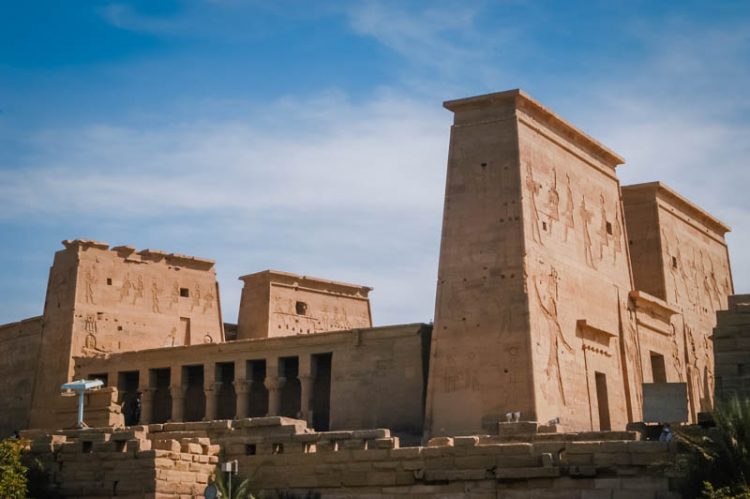
One of the most visited ruins in Aswan is the enormous Temple of Isis on Philae Island. The ruins here have been moved — although like the other temples that UNESCO reconstructed, it’s pretty hard to tell.
Read MoreAncient sites and sand

One of the most visited ruins in Aswan is the enormous Temple of Isis on Philae Island. The ruins here have been moved — although like the other temples that UNESCO reconstructed, it’s pretty hard to tell.
Read More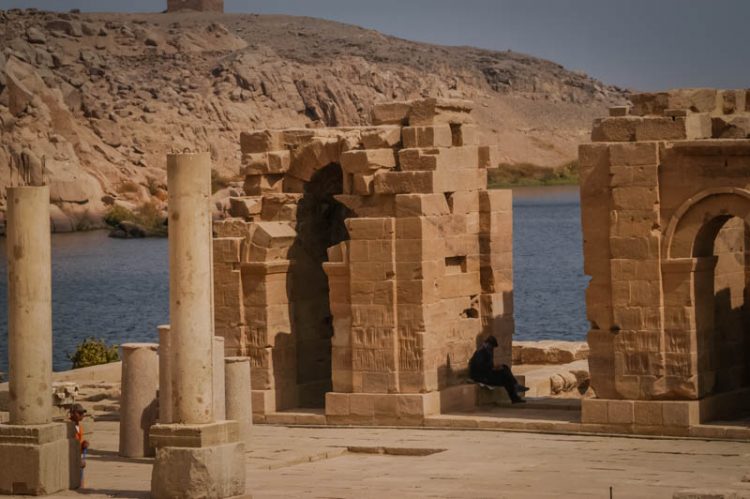
Far on the northeastern side of the island — and probably only seen if you circle around that side in the boat back to shore — is a small, very blocky looking set of ruins built by Diocletian
Read More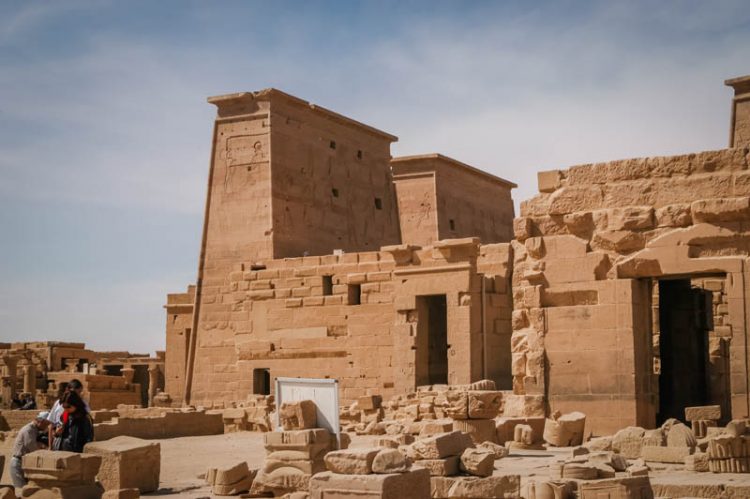
Adding to the dozen or so temples on the island is a small Temple to Hathor. The temple is almost completely ruined, leaving only two columns with hathor-heads for capitals and a a pile of rubble
Read More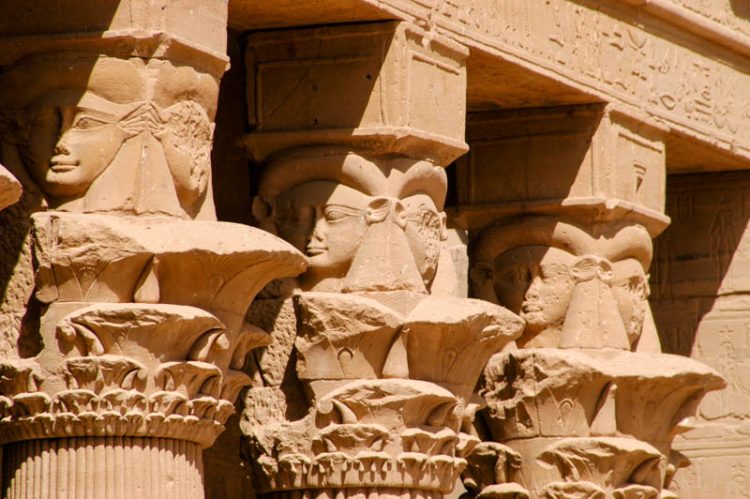
This structure on the west side of the courtyard is a Birth House (mammisi) built by Ptolemy IV to link him to his “royal ancestry” of Horus and Osiris
Read More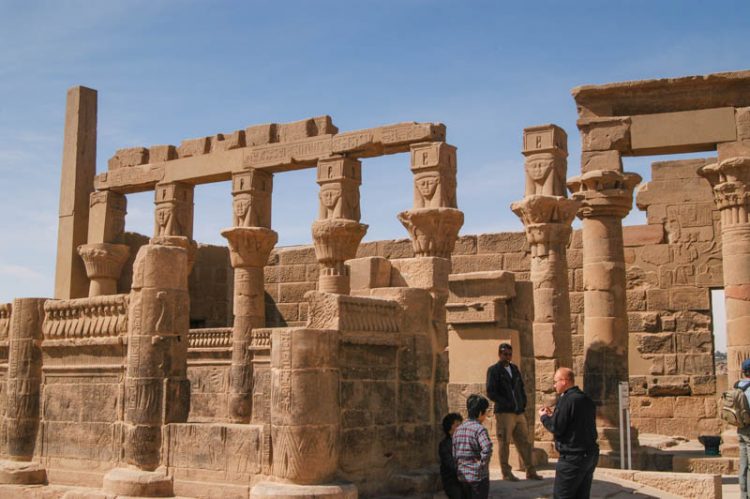
Another kiosk built on the island with the Temple of Isis includes a small structure built by Nectanebo. It stands at the main entrance to the colonnade, up a double staircase.
Read More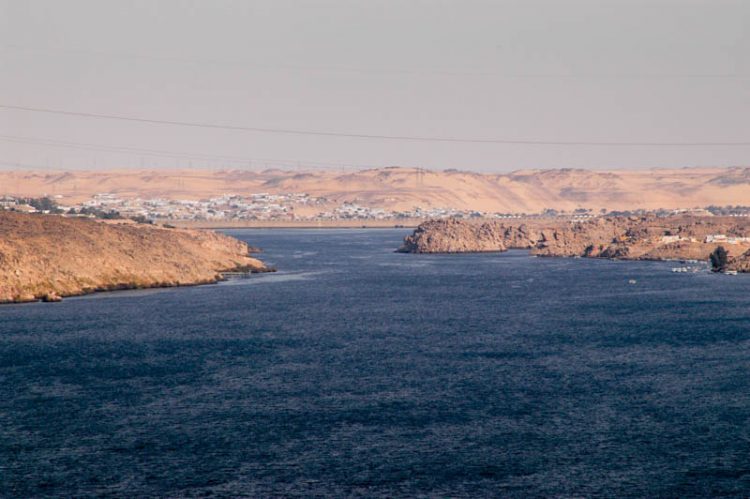
There are actually two Aswan dams – the original one built in 1902 and the High Dam which created Lake Nasser, the world’s largest reservoir. The dam resulted in dozens of tombs and temples being moved to higher ground.
Read More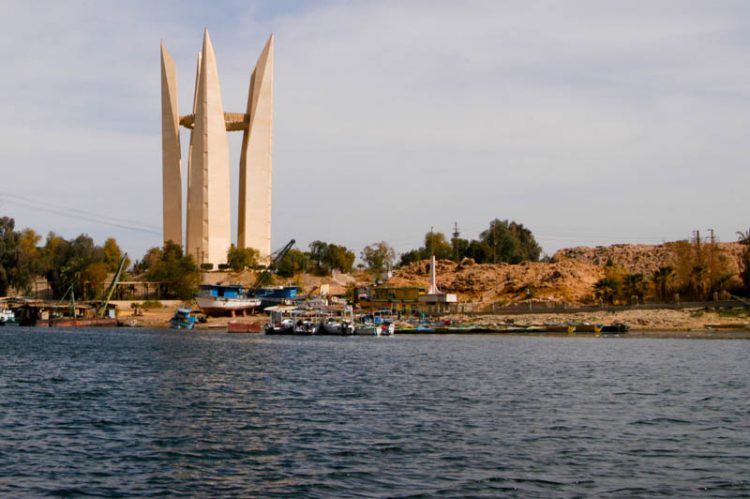
The…striking monument put up upon the completion of the High Dam.
Read More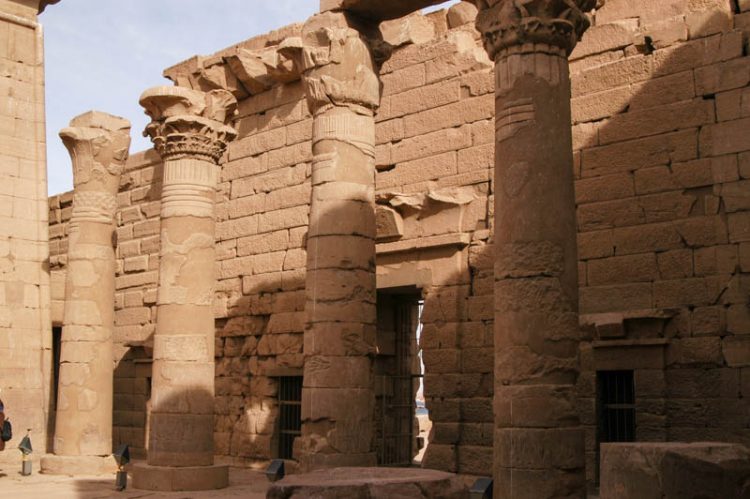
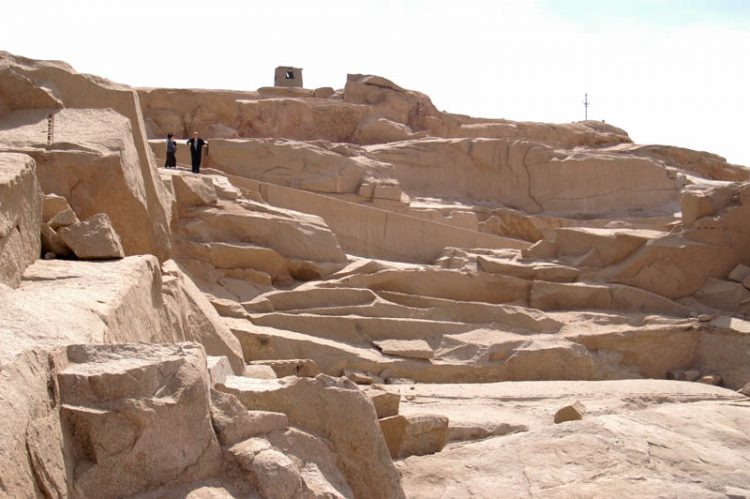
The granite quarries in Aswan produced all the “red aswan granite” used in Egypt. The quarries aren’t that interesting, really, except for the enormous unfinished obelisk still in situ
Read More